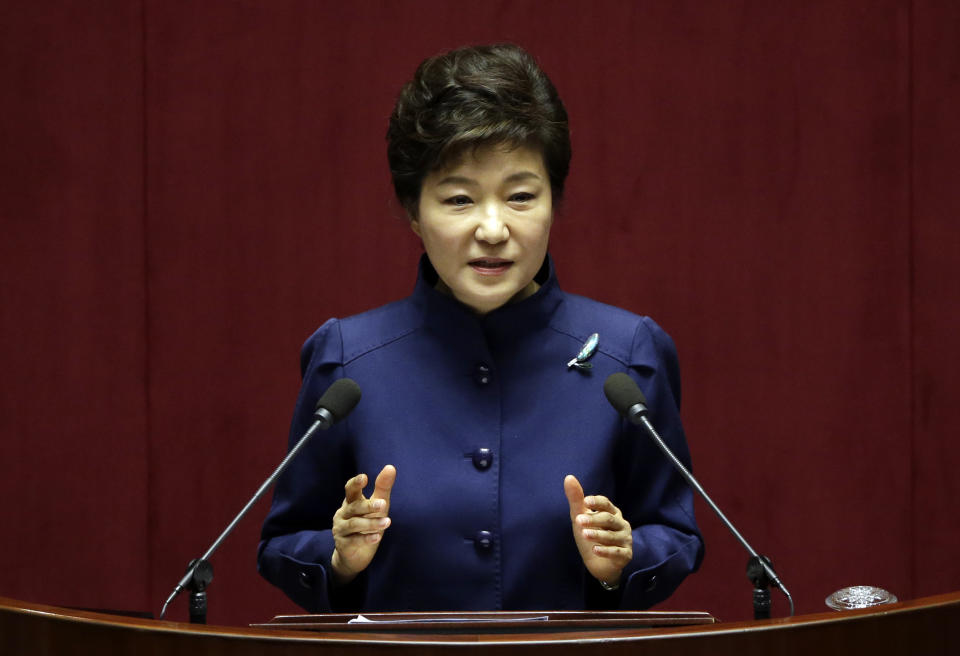Japan, South Korean leaders could meet next week
TOKYO (AP) — A big question looms in East Asia as the leaders of Japan and South Korea head to Europe next week: Will they finally meet?
Friction over Japan's brutal colonization of Korea in the first half of the 20th century has prevented a summit between Japanese Prime Minister Shinzo Abe and South Korean President Park Geun-hye since they both took office more than a year ago.
Japan is pushing for a three-way meeting with Park and President Barack Obama. All three plan to attend the March 24-25 Nuclear Security Summit in the Netherlands.
Most Japanese leaders have met their South Korean counterparts within the first year in office, so the failure of Abe and Park to do so has been a worry for the United States. Both are important allies in the face of China's military rise and the North Korean nuclear threat. U.S. officials have urged the two neighboring countries to improve ties and promote healing of historical grievances.
A South Korean presidential spokesman told reporters Friday that Seoul will likely make an announcement soon on the three-way talks that "are to be held" in the Netherlands. South Korean media interpreted the comments by Min Kyung-wook as a confirmation that the meeting will take place but Seoul's presidential office and Foreign Ministry couldn't immediately confirm that.
A meeting seemed all but impossible until Friday last week, when Abe said for the first time that his government is not considering a revision of the country's 1993 apology for forcing Korean and other women to work in brothels for Japanese soldiers before and during World War II.
South Korea reacted cautiously but positively to Abe's statement.
There are risks for Park in meeting Abe, said Robert Dujarric, the director of the Institute of Contemporary Asian Studies at Temple University Japan. Abe and people close to him have expressed revisionist views about history in the past, and any repetition of them could anger Koreans again.
Japan's commitment to the 1993 apology came into question last month after it said it would re-examine the accuracy of interviews conducted with women who said they were forced to provide sex. The interviews formed part of the basis for the apology.
Historians say tens of thousands of women served as sex slaves, called "comfort women" in Japan. Some Japanese nationalists have long insisted that the women were voluntary prostitutes, and that Japan has been unfairly criticized for a practice they say is common during war.
__
Associated Press writer Hyung-jin Kim contributed to this report from Seoul, South Korea.


